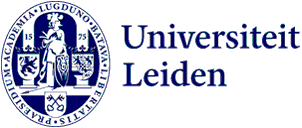
Get started with a new teacher's guide for transdisciplinary education
Transdisciplinary education, in which students work with external parties, is getting more popular. How do you start such a programme as a teacher? The Honours Academy and the Leiden Learning Innovation Centre have written a guide for all Leiden colleagues.
Students working with and for external organisations: so-called transdisciplinary education is increasingly popular at Dutch universities and Leiden University is no exception. An example of this is the Honours Academy's outside-the-box vision on education: crossing bridges between academic disciplines, as well as between university and society, has become a major part of the university's honours programmes.
But how do you set up fruitful collaboration with external parties? To help them get started, Bram Hoonhout (Honours Academy), together with Aayushi Shah and Niloufar Daneshkhah (Leiden Learning & Innovation Centre), developed a teacher's guide to transdisciplinary education. For the guide, Hoonhout gathered experiences from lecturers who already work with this type of education.
For students: real issues
Transdisciplinary programmes are valuable to both students and lecturers, says Hoonhout. ‘Students find it extremely valuable to apply their knowledge to something that has real meaning in society. They get to work with real people and real issues. That gives them the feeling that they can make a difference. On top of that, it's incredibly educational, because this kind of collaboration requires very different skills than, say, reading literature.’
For teachers: new dimensions
Teachers also have a lot to gain. Hoonhout: 'You expand your network, and it often offers new perspectives for your own research. I have heard on several occasions that, through contact with social partners, teachers have encountered new dimensions. Moreover, it can be a stepping stone to working more with social partners within your research and thus strengthening your contribution to society. Research and education reinforce each other.'
Step-by-step
The manual contains practical advice for setting up an educational collaboration. Hoonhout: ‘As a teacher, start with a topic you are passionate about and then try to think about other perspectives you would like to share with your students. Suppose you are researching inequality. In addition to an economic perspective, you could look at it through the lens of gender, psychology, housing or education. Next, you can seek out colleagues who know more about such aspects, because such a project is most valuable when it transcends faculty boundaries. You can then be the coordinator of the programme yourself, with your colleagues stepping in as guest lecturers.'
Knowledge brokers
The next step is to consider adding a practical component to the project. ‘There are many knowledge brokers working at the university: go meet them and present the subject of your programme to them. They will likely be able to assist you in finding a suitable social partner.’
The guide is part of a larger whole, Hoonhout concludes. ‘Many teachers who want to get started with this have indicated that they would like more support and to learn from each other.’ Hoonhout advices anyone interested to apply for the Special Interest Group on the topic (see below).
The teacher's guide to transdisciplinary eduaction can be downloaded here.
LLInC facilitates a Special Interest Group as part of the Leiden Education Support Network, which will start in the spring of 2026. Professional staff, educational researchers and lecturers will collaborate on their shared interest in the subject and meet regularly to exchange best practices. If you would like to know more about this SIG or other opportunities, please contact us through this form.
Getting started with transdisciplinary education at De Kennisboomgaard
The guide comes just in time, because on 28 November, PLNT will host the Knowledge Orchard, an event which focuses on setting up interdisciplinary and transdisciplinary collaborations. During the session ‘Build The Future Classroom’ Melissa Amoros Lark and Bram Hoonhout explore creative ways for teachers to work with society. In the afternoon, you can immediately put this into practice in workshops designed to facilitate new transdisciplinary collaborations. Various social partners, such as national and local authorities, will then join in to explore opportunities for collaboration.
View the entire programme of De Kennisboomgaard and register here!
